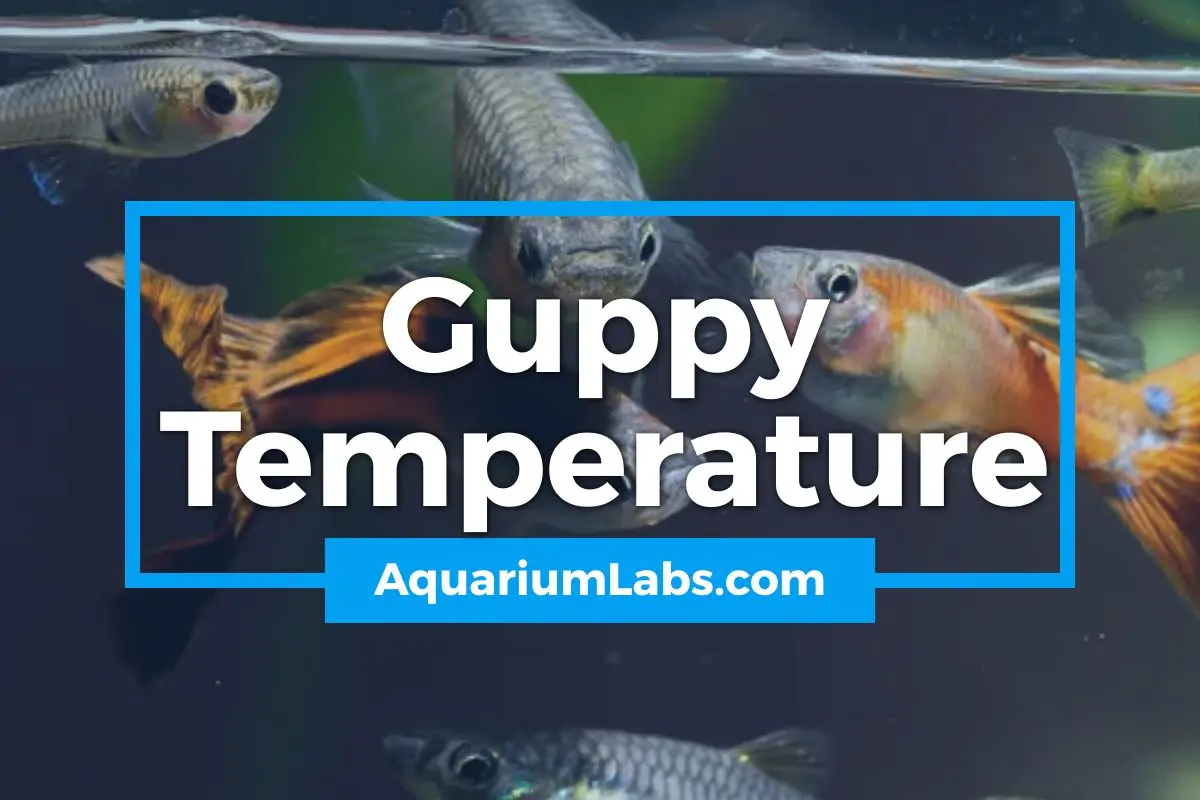Guppies are a popular fish species in the aquarium hobby for a long list of reasons. They are vibrant-colored fish, and they are constantly active in the tank. Many hobbyists see them as a great pet choice because they are super easy to keep.
Breeders call them rainbow fish because no two guppy fish are the same. Another possible reason for the name is their colorful scales.
Many times, their colors are influenced by the prevailing ecological conditions. These may range from the number and nature of predatory species in the water and many other factors.
They are also called million fish. This is because of their impressive breeding capacity. A fish can birth as many as 50 to 100 babies every 29-32 days! While most fish species give birth by laying eggs, guppies are among the few fish species that are known as livebearers. They reproduce differently.
Guppies carry their eggs around in their bodies throughout the incubation period. The fish stays pregnant for about 30 days and then gives birth to numerous live offspring.
They are highly adaptable fish species and can cope with numerous ecological situations. Unlike other fish, they are courageous and never afraid of predators. Guppies are known to approach predatory fish species without the fear of being eaten.
They like warmer waters, but they can tolerate cold water too.
But before you run to the pet store to get your first batch of these beauties, learning about the right guppy temperature is very important.
Can Guppy Fish Survive in Fish Tank With Higher Water Temperatures?
For clarity and with particular reference to guppy fish, high temperature means anything above the safe range up to 90° F and more.
Although they can tolerate higher water temperatures up to 90° F, they will die because of a lack of oxygen if they are left in such an extreme water temperature for too long.
At a temperature of about 82°F-90° F, the oxygen level in the water is low—the warmer the water, the lesser the oxygen level. So you risk losing your guppies if you leave them in higher water temperatures for too long. Anything from 36 hours and more is too long. You can expect your fish to start displaying symptoms of stress and other health issues.
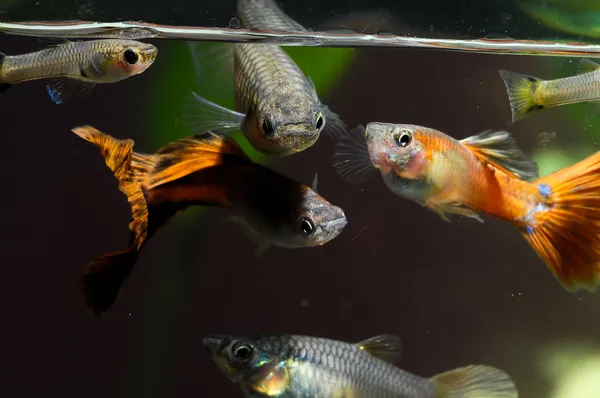
Another reason you should not allow guppies to stay in higher water temperatures is that the beneficial bacteria that break down ammonia in the tank will also die from a lack of oxygen.
These bacteria rely on oxygen drawn from the water to break down ammonia. If you leave the water temperature on the high side for too long, you put your guppies at the risk of fin and tail rot from ammonia burns. This should not surprise you, as it will be a natural consequence of the ammonia build-up.
Can Guppy Fish Survive in the Fish Tank With Lower Water Temperatures?
Yes, guppies can survive in a water temperature lower than the optimal temperature range of 72°F-82° F for more than 48 hours. But your guppies will be at the risk of developing hypothermia.
Hypothermia is a health condition that is occasioned by cold water temperature. It literally means being extremely cold. Guppies are tropical fish. If you subject them to hypothermia for too long, they will die from the stress.
Many times, what causes hypothermia in fish is the absence of a defective heating unit. Also, a proper heating unit may sometimes not be sufficient enough for the tank leading to hypothermia for the fish.
If the water temperature also falls far below the optimal 72°F for more than 2 days, your guppies are not likely to survive and risk developing diseases. A stable range between 72°F-82°F is the best to keep your fish healthy.
Do Guppies Need a Heater?
While it is important to provide a filtration system and other sustenance systems for your guppies, the pertinent question is whether they need a heater. Whether guppies need a heater depends on the prevailing climatic conditions in your location.
If you reside in a tropical environment, the chances are that the temperature will be lowest at about 68°F all year round or even higher. You don’t need a heater for your guppies with a temperature range like that. You can pretty much leave them in the pond outdoors throughout the entire year.
However, you might still need a heater even though you stay in a tropical environment. First of all, if the temperature at its lowest is way below 68°F, a heater is necessary to warm your guppy aquarium.
Second, the water temperature for guppies in your tank may not be the same as the temperature range of the tropical region. Air heat differently from water.
Water temperature rises slower than the air temperature. The difference in the temperatures can lead to problems in your guppy tank. A heater is necessary if you want to prevent the temperature in the guppy tank from dropping below the minimum water temperature for guppies.
Third, even if the temperature of your guppy aquarium is at the suitable water temperature range, remember that a cold breeze from a few trees around your backyard could suddenly change the aquarium water temperature.
It could change the water’s temperature from warm to cold water instantly, putting your guppy fish in shock. A heater in the fish tank will help your guppies cope with the sudden change.
But if you stay in colder climates, you will need a heater to keep your guppies within the ideal temperature range. This is important to keep them healthy, especially if you live in a winter-prone region.
If the temperature in your area is often below 68°F at the coldest point of the year, you should get a heater. Even if you move your guppies indoors, you will need aquarium heaters or a heated aquarium to keep your guppies at a suitable temperature.
If you fail to do so, you will be exposing your guppies to a possible case of hypothermia and other health issues.
Most fish tanks come with hang on heaters. But bright lights also contribute to the amount of heat the water gets. So factor in the lights and the hanging heater. Ensure that the water temperature is neither above the maximum temperature nor below the minimum.
Understanding the Needs of Your Tropical Fish
Guppies are native to South America. They live in waterways near countries such as Barbados, Brazil, and Trinidad and Tobago.
Guppies thrive in warm water. Remember where they originate from? South America. So it is only natural that they prefer the warmer waters as they are tropical fish.
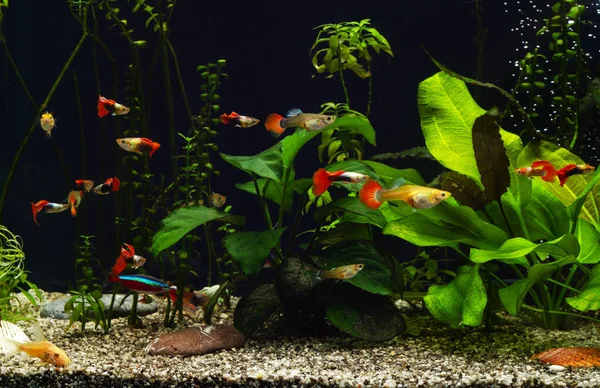
The Water Temperature for Guppies
The optimal temperature range for guppies is 72°F-82° F. You can leave them at a stable water temperature of 78° F.
It is important to understand the difference between air temperature and water temperature.
While they can sometimes live in cold water, it isn’t ideal. This can stress their bodies and even cause them to get hypothermia.
Placing your heater wrong can make the water too hot as the heat will not be distributed evenly. Ensure that the heater is as close as possible to the filter. This way, the warm water will be equally dispersed throughout the fish tank. Otherwise, a part of your fish tank will be warmer than the other.
Depending on how severe the drop in temperature is, the size of your tank, and the location of your tank, you may opt for two heaters. You can place the first by the filter and the other right on the opposite side. While this will distribute the heat more effectively, you should get a thermometer to accurately monitor the temperature constantly.
Although the tropical aquarium heater reads the temperature, the heater’s positioning often makes the reading inaccurate. That is misinformation you cannot afford. Get a thermostat for accurate temperature reading.
When the Water Is Too Warm
A hot tank is not ideal. You will notice your guppy fish darting from one end to the other with a lot of energy. This is so because the increased temperature means increased metabolism in its body, which translates to more energy that must be spent.
While the outburst of energy may seem impressive, it will lead to unpalatable results. Your guppies will be stressed out in the end. They will also end up with a weaker immune system, making them vulnerable to ailments.
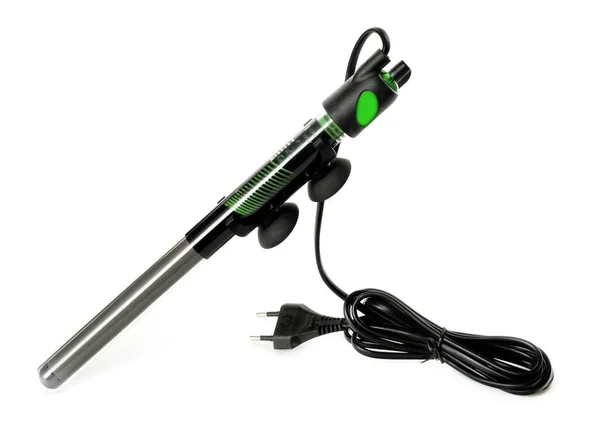
You can take off your aquarium’s lid and have a fan blow over the water to cool it.
Alternatively, you can stop the problem by adding some conditioned water into the fish tank. Whichever solution you choose, ensure that you lower the water temperature in the aquarium.
When the Water Is Too Cold
Your guppy fish will become sluggish and dull if the water gets too cold. It’s only natural because they are ectothermic.
You may also notice that they will begin to lose appetite. This is usually a result of the stress on their body. They will naturally lose appetite because of the stress.
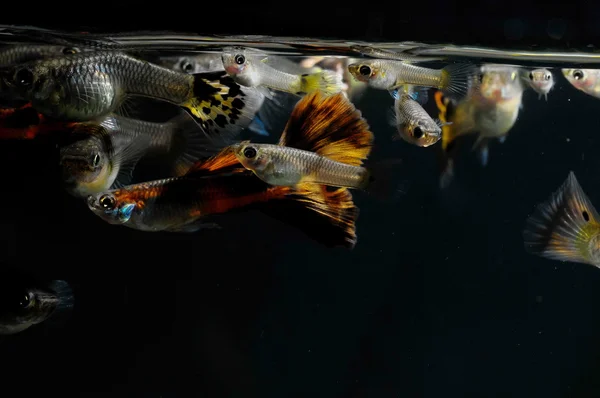
Then starvation will lead to a weak immune system. You’ll also notice that they swim more to the tank’s surface.
If the temperature remains cold, your guppies are at risk of suffering several health issues ranging from dropsy, swim bladder disease, etc. The likely consequence will be the inevitable; death.
To prevent this, install a heater into your tropical aquarium. If yours came with a heating unit, you need to make that the heat supplied to the tank is enough to keep your guppies healthy. If it didn’t, you could go for a hang on heater or one of the prolific submersible heaters.
Final Thoughts On Guppy Temperature
Guppies are aquatic marvels. They are a versatile fish species with many ecological benefits, restoring balance to the ecosystem.
Many governments are exploring non-chemical ways to combat malaria with the help of guppies. Since guppies feed on malaria larva, they introduce the fish into their warm water bodies to eat up the mosquito eggs and larva so that the population of mosquitoes is drastically reduced.
Now that you know more than a bit about guppies, you are better positioned to make informed decisions about keeping guppies if you choose them as your aquarium fish.
Remember, too hot or too cold is a problem. They prefer warm waters, and the right water temperature range is between 72°F-82° F. You can’t go wrong with this easy-to-keep fish.
Related Reading:
- What Size Heater Do I Need for My Fish Tank?
- Where Should I Place My Aquarium Heater?
- Can Guppies Live in Outdoor Ponds?

